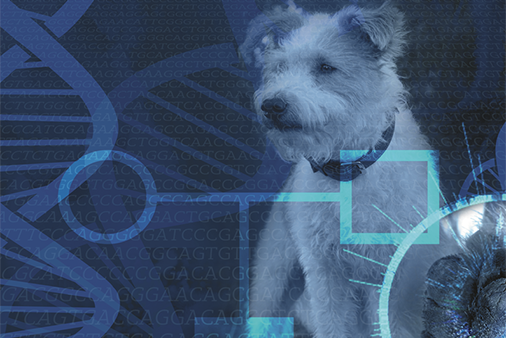Research by topic
HBIO conducts research in many different areas. On this page you can read about our current research divided into topics.
Anatomy
The subject of domestic animal anatomy covers the knowledge of the structure of the organism, from the whole animal to the structures and functions of cells, focusing mainly on food-producing, sport and companion animals. It also includes histology and functional anatomy, in particular biomechanical principles that enable and constrain movement.

Applied Genetics
Research in applied genetics focuses on how we can use breeding to improve traits such as production, performance, health, fertility and temperament in domestic animal populations. We conduct research on food-producing animals in agriculture and fish farming, as well as on sports and companion animals.

Bacteriology
The research profile of the Section of Bacteriology includes the pathogenicity and pathways of bacteria important in veterinary medicine.

Bioinformatics
In our bioinformatics research, we combine computer science, statistics, mathematics and engineering to analyze and interpret biological data.

Immunology
Basic immunological research focusing on the interaction between infectious agents and the host immune system.

Molecular genetics
The aim of molecular genetics research is to understand how the different components of the genome function at the molecular level (DNA and RNA level) and how the structure of the genome is regulated by epigenetic changes.

Parasitology
Focus on sustainable control methods of parasitic infections in animals. Our research includes diagnostic development, drug resistance studies and basic studies of parasite population genetics and transmission biology.

Pathology
Focus on connective tissue diseases involving skeletal and circulatory systems in domestic animals, with a translational approach to human medicine.

Pharmacology
In pharmacology, we perform research with the ambition of developing safe and effective medicines for all animal species, with animal welfare and animal health in focus. The knowledge can often be used comparatively for human medicine as well. We also develop methods for a safe and optimized doping control.

Physiology
The subject of pet neurophysiology covers brain processes relevant to learning and memory, stress, emotions and personality, and how the brain is affected by various diseases

Quantitative genetics
Quantitative genetics involves theoretical models for the analysis and interpretation of so-called complex traits.

Toxicology
Research in toxicology is divided into environmental toxicology, food safety toxicology and molecular toxicology.

Veterinary biochemistry
Research in biochemistry aims to elucidate mechanisms at the molecular level. Here, e.g. processes leading to the aggregation of proteins, enzymes involved in the metabolism of nucleotides, molecular mechanisms in inflammation and the production of artificial spider silk.

Veterinary Public Health
Intra- and interdisciplinary projects in different parts of the world where conditions for good animal and human health vary.

Virology
Research on viruses of veterinary and public health importance, pathogenesis and viral-host interaction of viral infection and applications of high-throughput sequencing (HTS) technologies and bioinformatics, etc.
